Bugs in Singapore: Common Types and Prevention Measures
Bugs in Singapore are a common sight due to the country’s tropical climate. Singapore is home to a diverse range of insects, including more than 300 species of butterflies, 120 species of dragonflies, 250 species of grasshoppers, and hundreds of ants, moths, beetles, and more. While some insects are harmless, others can be a nuisance or even pose a health risk.
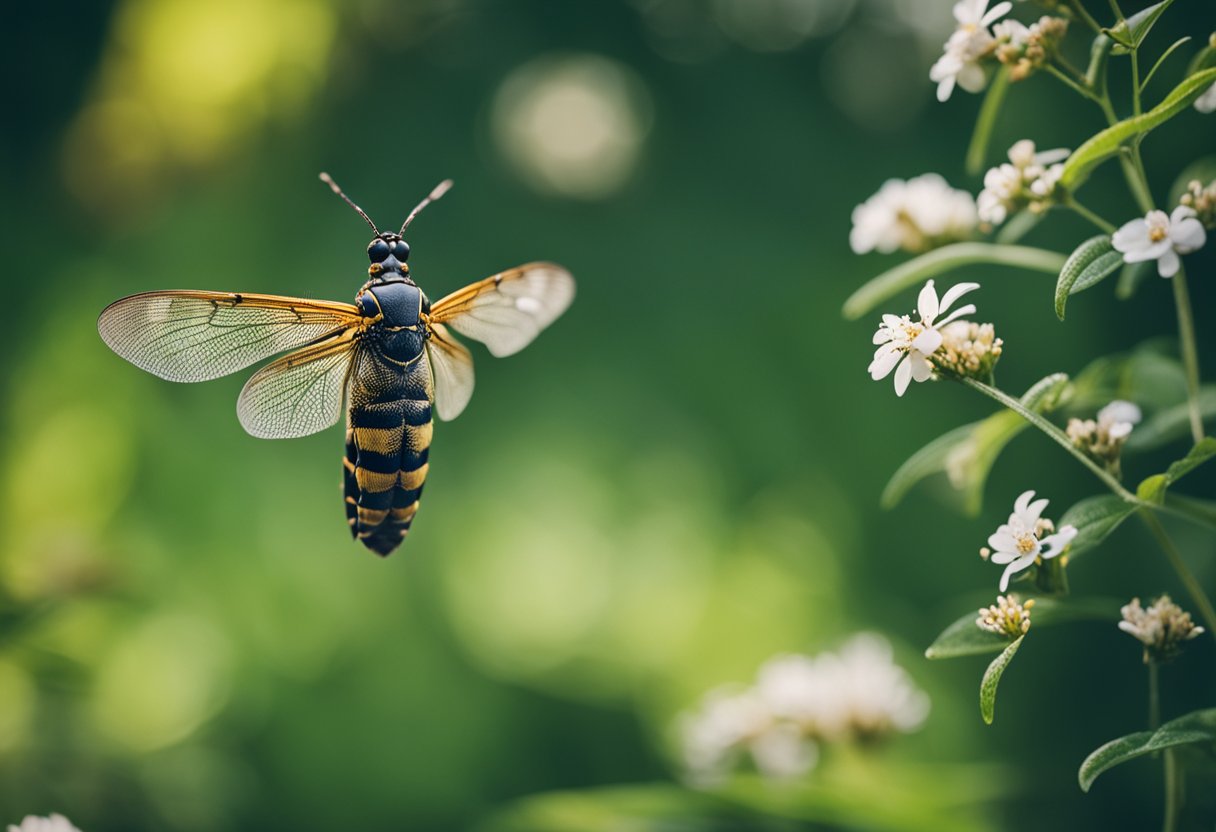
One of the most common insects found in Singapore houses is the cockroach. A dirty environment encourages cockroaches to flourish, and they can quickly infest a home. Other common insects found in Singapore homes include flies, ants, booklice, mosquitoes, termites, and bed bugs. While some of these insects are simply annoying, others can cause damage to your home or transmit diseases to humans and pets.
If you’re interested in learning more about the insects of Singapore, there are many resources available. From books and online articles to guided nature walks and insect exhibits, there are plenty of opportunities to explore the fascinating world of bugs in Singapore. By learning more about these creatures, you can gain a greater appreciation for the biodiversity of Singapore and the important role that insects play in our ecosystem.
Common Bugs in Singapore
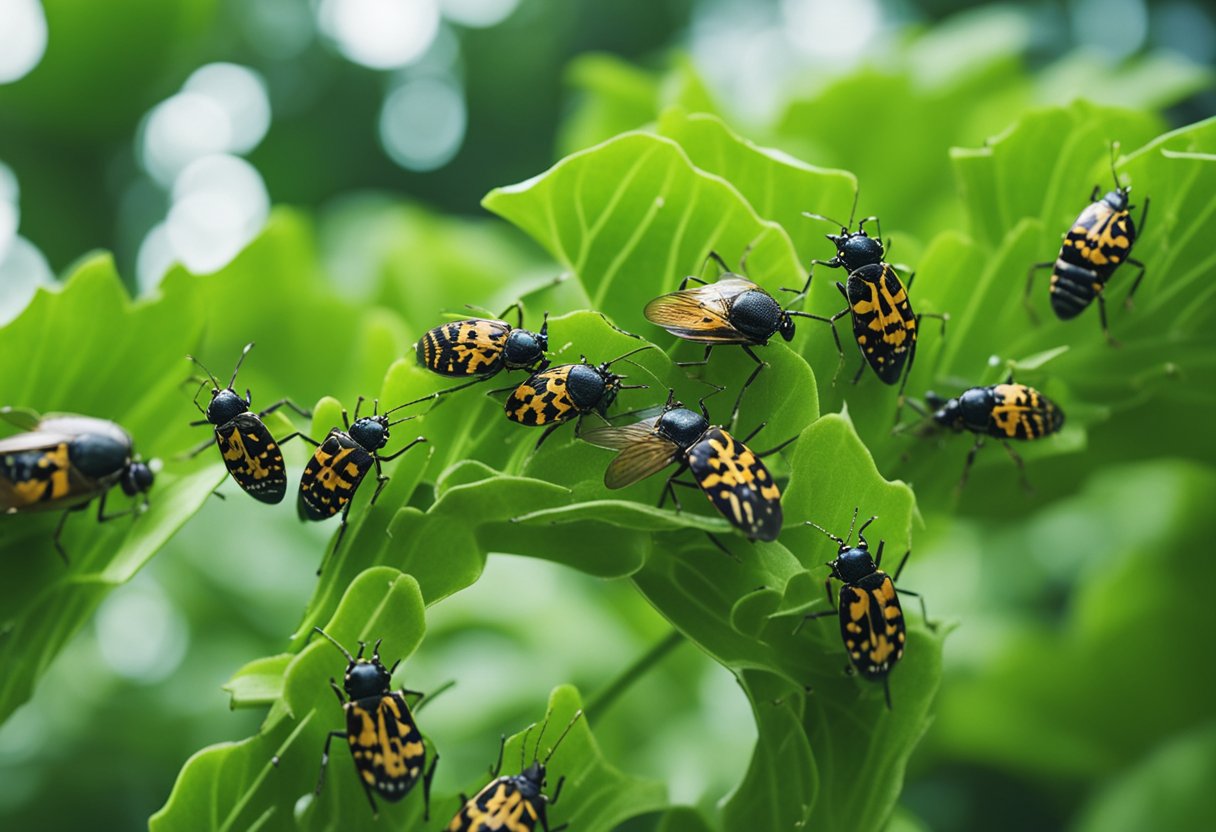
As a resident of Singapore, you are likely to encounter various types of bugs in your daily life. Some of the most common bugs in Singapore include ants, flies, cockroaches, mosquitoes, termites, moths, spiders, lizards, beetles, bed bugs, grasshoppers, wasps, aphids, and flying ants.
Ants are a common sight in Singapore homes and can be found in kitchens and other areas where food is present. They can be controlled by keeping your home clean and free of food debris, sealing food containers, and using ant baits or sprays.
Flies are another common pest in Singapore, especially during the hot and humid months. Drain flies, fruit flies, and houseflies are some of the most common types of flies found in Singapore homes. To prevent infestations, keep your home clean and free of food debris, and use fly traps or sprays.
Cockroaches are a common sight in Singapore homes and can be difficult to eliminate. They are attracted to food debris, so keeping your home clean and free of clutter can help prevent infestations. Cockroach baits and sprays can also be effective in controlling these pests.
Mosquitoes are a common pest in Singapore, especially during the rainy season. They can be controlled by eliminating standing water around your home, using mosquito nets or screens, and using mosquito repellents.
Termites are a serious pest in Singapore and can cause significant damage to wooden structures. Regular termite inspections and treatments can help prevent infestations and protect your home.
Bed bugs are another common pest in Singapore and can be difficult to eliminate. They are attracted to human blood and can be found in bedding, furniture, and other areas where people sleep. Professional pest control services are often needed to eliminate bed bug infestations.
In addition to these pests, Singapore is also home to various types of bees, spiders, lizards, beetles, grasshoppers, wasps, and aphids. While these bugs are generally harmless, some can be a nuisance or cause damage to plants or structures.
Overall, it is important to take steps to prevent and control bug infestations in your home to ensure a clean and healthy living environment.
Bugs and the Singaporean Home
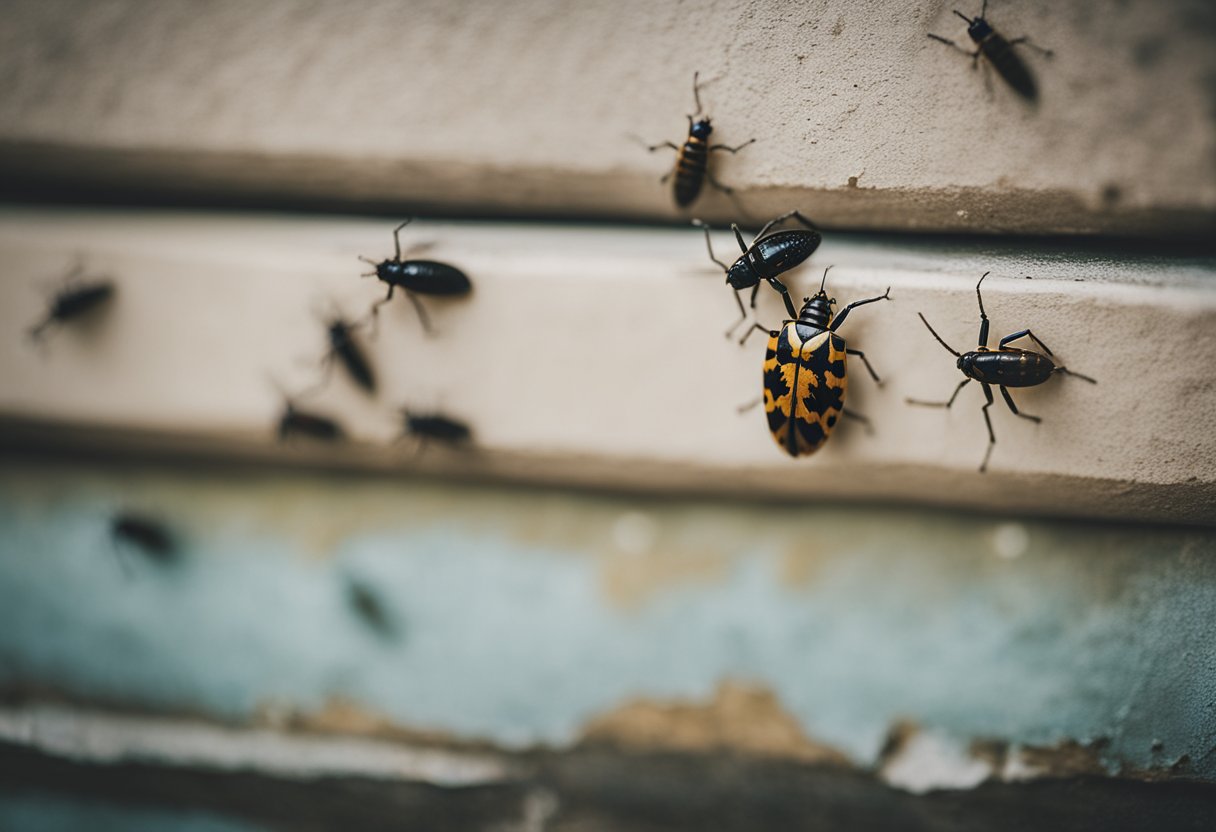
As a homeowner in Singapore, it is important to be aware of the common bugs that may infest your home. These pests can be found in various areas of your home, including walls, floors, doors, windows, and even wooden furniture.
One of the most common pests found in Singaporean homes are cockroaches. These insects thrive in warm and humid environments and can be found in cracks and crevices in your home. To prevent infestations, it is important to keep your home clean and free of food debris. You can also seal up any cracks or openings in your walls or floors to prevent them from entering your home.
Another common pest found in Singaporean homes are bed bugs. These insects can be found in your bed and can cause itchy bites and discomfort. To prevent infestations, it is important to regularly wash your bedding and vacuum your mattress. You can also use bed bug repellent sprays to keep them away.
Termites are also a common problem in Singaporean homes, especially those with wooden furniture or structures. These pests can cause significant damage to your home and can be difficult to detect. It is important to regularly inspect your home for signs of termites, such as hollow wood or mud tubes. If you suspect an infestation, it is important to call a professional pest control service.
Ants, mosquitoes, and rats are also common pests found in Singaporean homes. To prevent infestations, it is important to keep your home clean and free of clutter. You can also use insect repellent sprays and traps to keep these pests away.
In conclusion, it is important to be aware of the common bugs that may infest your home in Singapore. By taking preventative measures and regularly inspecting your home, you can keep these pests at bay and ensure a comfortable living environment.
Health Risks Associated with Bugs
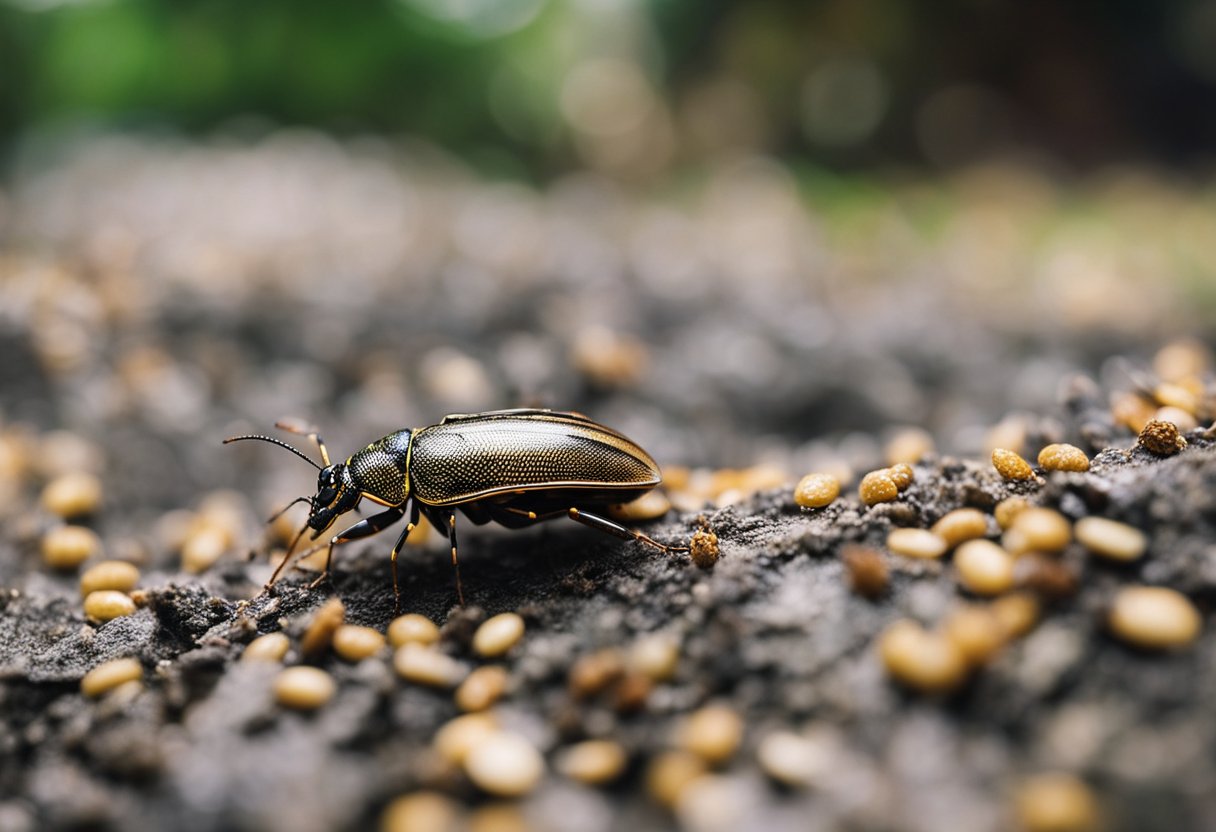
Bugs can pose various health risks to you and your family. From mosquitoes carrying deadly diseases to cockroaches spreading bacteria, it’s important to understand the potential dangers and take preventive measures. Here are some of the health risks associated with bugs in Singapore:
Dengue Fever
Dengue is a viral disease transmitted through the bite of infected Aedes mosquitoes. Symptoms include high fever, severe headache, joint and muscle pain, and rash. In severe cases, dengue can cause bleeding, shock, and even death. To prevent dengue, you should eliminate mosquito breeding sites, use mosquito repellent, and wear protective clothing.
Allergic Reactions
Many bugs, including cockroaches and bed bugs, can cause allergic reactions in some people. Symptoms may include sneezing, runny nose, itchy eyes, and skin rashes. If you suspect an allergic reaction, seek medical attention immediately.
Contamination
Bugs can contaminate food, water, and other surfaces with their feces, saliva, and body parts. This can lead to the spread of bacteria and other pathogens, which can cause illnesses such as food poisoning and diarrhea.
Bites
Bites from bugs such as mosquitoes, bed bugs, and fleas can cause itching, swelling, and pain. In some cases, bites can also transmit diseases such as dengue fever, Zika virus, and Lyme disease.
To mitigate the health risks associated with bugs, you should take preventive measures such as keeping your home clean and dry, sealing cracks and gaps, and using insect screens on windows and doors. If you suspect a bug infestation, it’s best to seek professional pest control services to ensure the problem is properly addressed.
Identifying Bug Infestations
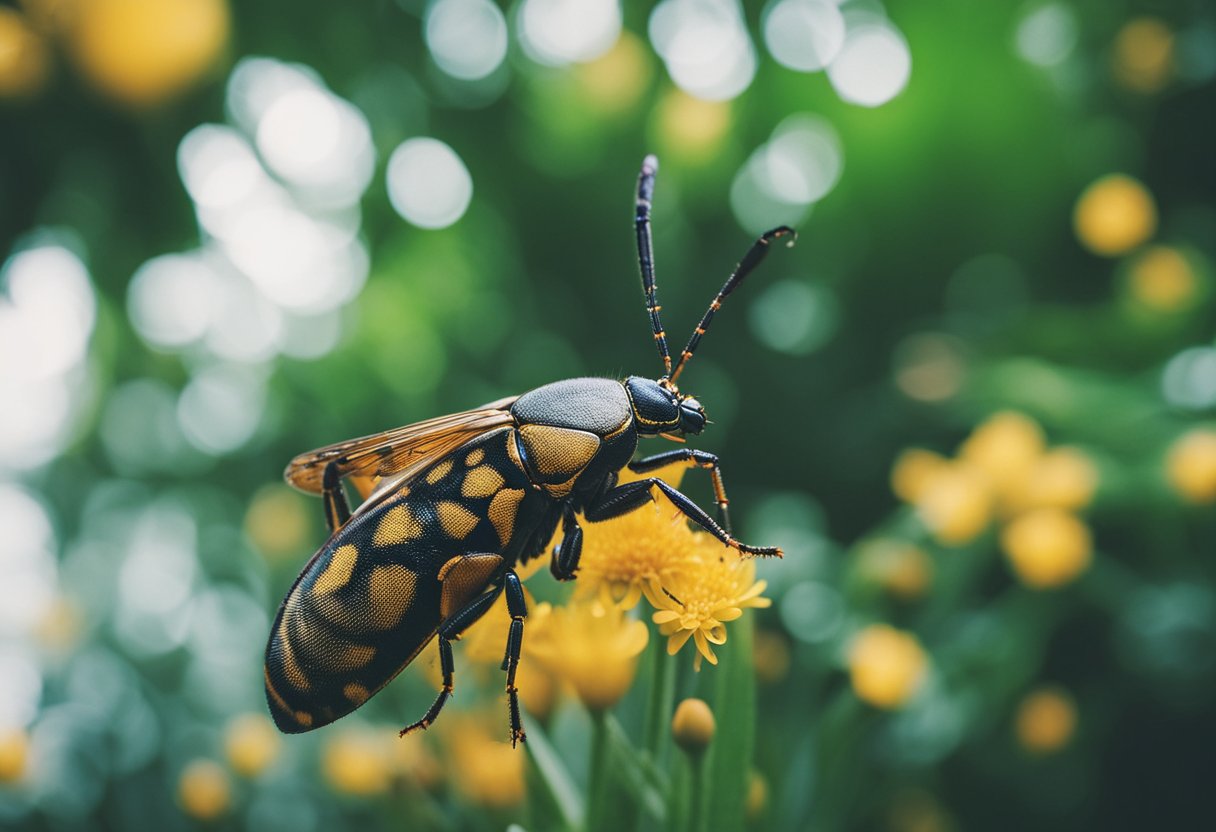
Identifying bug infestations is crucial to prevent them from spreading and causing further damage. Here are some tips to help you identify bug infestations in your home:
- Look for signs of bug activity such as eggs, droppings, and shed skins. These can often be found in dark, hidden areas such as behind furniture, in cracks and crevices, and in corners.
- Check for moisture in your home as many bugs thrive in damp environments. This can include leaky pipes, standing water, or high humidity levels.
- Keep an eye out for food particles as many bugs are attracted to food sources. Make sure to clean up spills and crumbs promptly and keep food stored in sealed containers.
- Look for larvae as this can be a sign of a developing infestation. Larvae can often be found near their food source or in areas where adult bugs have been spotted.
If you suspect that you have a bug infestation, it is important to contact a professional pest control service in Singapore to properly identify and treat the problem. Remember, early detection and prevention are key to effectively managing bug infestations in your home.
Bug Control Measures
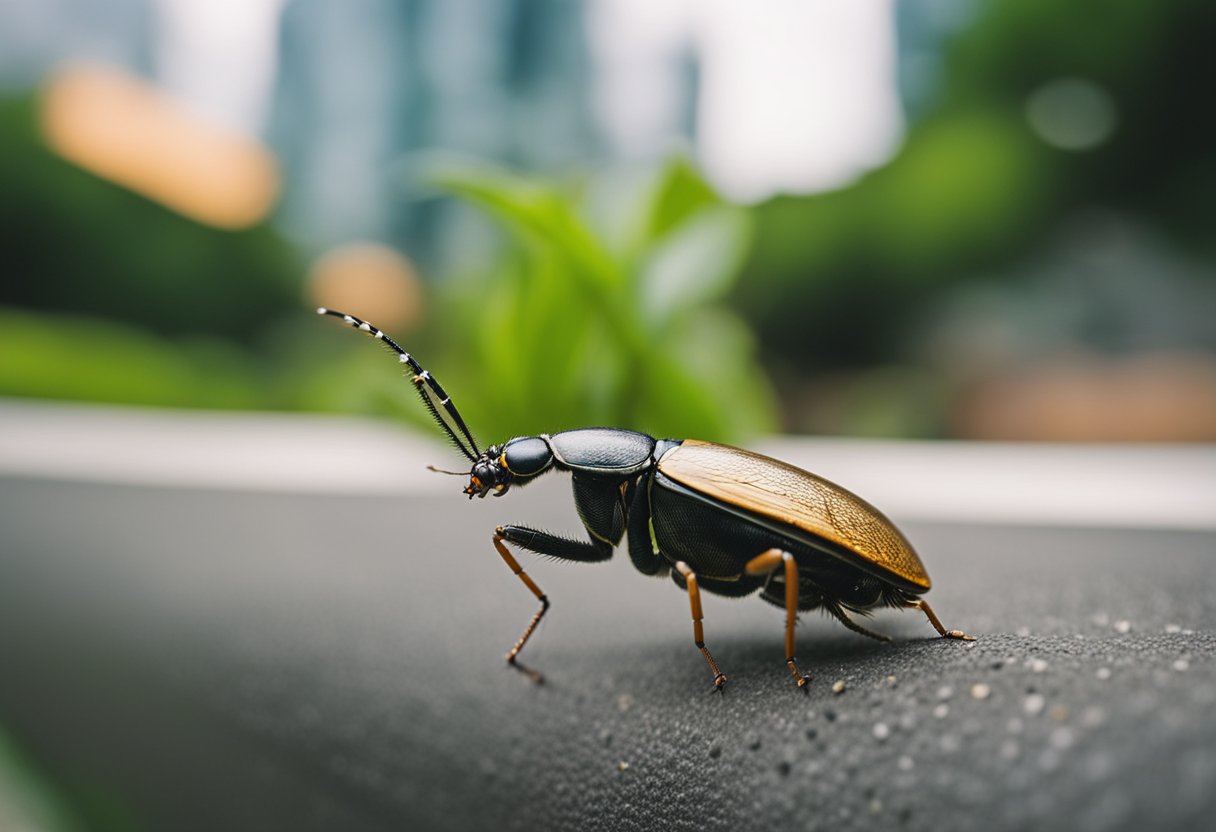
If you are dealing with a bug infestation in your home or workplace, there are several bug control measures you can take to get rid of them.
One of the most effective ways to control bugs is to hire a pest control company. They have the necessary expertise and equipment to exterminate the bugs and prevent them from coming back. They may use insecticides, fly traps, and other methods to get rid of the bugs.
Another way to control bugs is to use essential oils. Some essential oils, such as peppermint and lavender, are known to repel bugs. You can use them in a diffuser or spray bottle to keep bugs away.
Caulk is also an effective way to prevent bugs from entering your home or workplace. You can use it to seal any cracks or gaps in walls, windows, and doors. This will prevent bugs from entering and nesting in your property.
Dehumidifiers can help to control bugs that thrive in moist environments. Bugs such as cockroaches and silverfish require high levels of humidity to survive. By using a dehumidifier, you can reduce the humidity levels in your home and make it less hospitable for bugs.
Mosquito control is another important bug control measure in Singapore. Mosquitoes are carriers of diseases such as dengue fever and Zika virus. To control mosquitoes, you can use mosquito repellents, mosquito nets, and insecticides. You can also eliminate standing water sources, such as puddles and containers, where mosquitoes breed.
Regular vacuuming is also an effective way to control bugs. By vacuuming regularly, you can remove bugs and their eggs from carpets, furniture, and other surfaces. This will prevent them from reproducing and spreading throughout your property.
Finally, preventive measures are key to controlling bugs. You can prevent bugs from entering your property by keeping it clean and free of clutter. You should also store food in airtight containers and dispose of garbage regularly. By taking these preventive measures, you can reduce the likelihood of a bug infestation in your home or workplace.
In some cases, extermination may be necessary to get rid of bugs. However, it is important to use pesticides responsibly and only when necessary. Pesticides can be harmful to humans and pets if used incorrectly. Always follow the instructions on the label and use protective gear when handling pesticides.
Natural Remedies for Bug Control

If you’re looking for natural ways to control bugs in your home, there are several remedies you can try. Here are some of the most effective ones:
-
Apple cider vinegar: Mix equal parts of apple cider vinegar and water in a spray bottle and apply it to areas where bugs are likely to gather. The smell of vinegar repels many types of bugs, including ants and fruit flies.
-
Dish soap: Mix a few drops of dish soap with water in a spray bottle and apply it to plants that are infested with bugs. The soap will suffocate the bugs and kill them.
-
Citrus peels: Place citrus peels around the areas where bugs are likely to gather. The smell of citrus repels many types of bugs, including spiders and mosquitoes.
-
Lemongrass: Plant lemongrass in your garden or around your home to repel bugs. The smell of lemongrass is unpleasant to many types of bugs, including mosquitoes and ticks.
-
Lavender: Plant lavender in your garden or around your home to repel bugs. The smell of lavender is unpleasant to many types of bugs, including moths and fleas.
-
Cinnamon: Sprinkle cinnamon around the areas where bugs are likely to gather. The smell of cinnamon repels many types of bugs, including ants and cockroaches.
-
Sugar: Mix equal parts of sugar and baking soda and sprinkle the mixture around the areas where bugs are likely to gather. The sugar will attract the bugs, while the baking soda will kill them.
-
Sweet foods: Keep sweet foods, such as fruits and honey, in sealed containers to prevent bugs from being attracted to them.
By using these natural remedies, you can control bugs in your home without using harmful chemicals.
Bug Habitats and Breeding Grounds
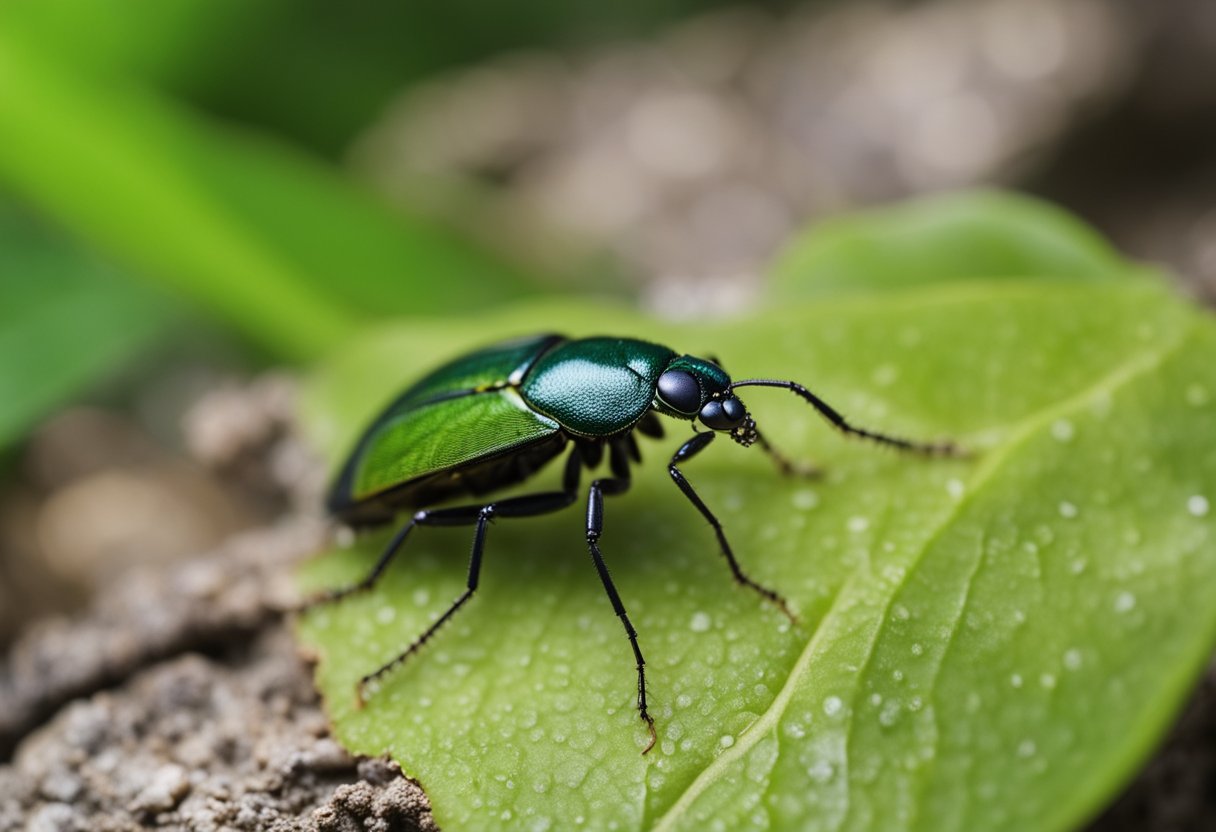
Singapore’s tropical climate and high humidity provide an ideal environment for bugs to thrive. Bugs can be found in various places, including homes, parks, and forests. Understanding the different bug habitats and breeding grounds can help prevent infestations and control their population.
One of the most common breeding grounds for bugs is stagnant water. Mosquitoes, for example, lay their eggs in stagnant water, and the larvae hatch in a few days. To prevent mosquito breeding, it’s important to remove any standing water around your home, such as in flowerpots, gutters, and birdbaths.
Food is another factor that attracts bugs. Cockroaches, for example, are attracted to food scraps and crumbs. To prevent cockroach infestations, it’s important to keep your kitchen clean and free of food debris. Additionally, sealing food in airtight containers can help prevent bugs from getting in.
The rainy season in Singapore can also lead to an increase in bug populations. During the rainy season, bugs are more likely to seek shelter in homes and buildings. To prevent bugs from entering your home during the rainy season, make sure all windows and doors are properly sealed.
In addition to homes, bugs can also be found in parks and forests. These areas provide a variety of habitats for bugs, including trees, bushes, and grass. It’s important to be aware of your surroundings when spending time in these areas and take precautions, such as wearing long sleeves and pants and using insect repellent.
Overall, understanding the various bug habitats and breeding grounds can help prevent infestations and control their population. By taking preventative measures, such as removing standing water, keeping your home clean, and wearing protective clothing, you can reduce the likelihood of encountering bugs in Singapore.
Impact of Bugs on the Environment
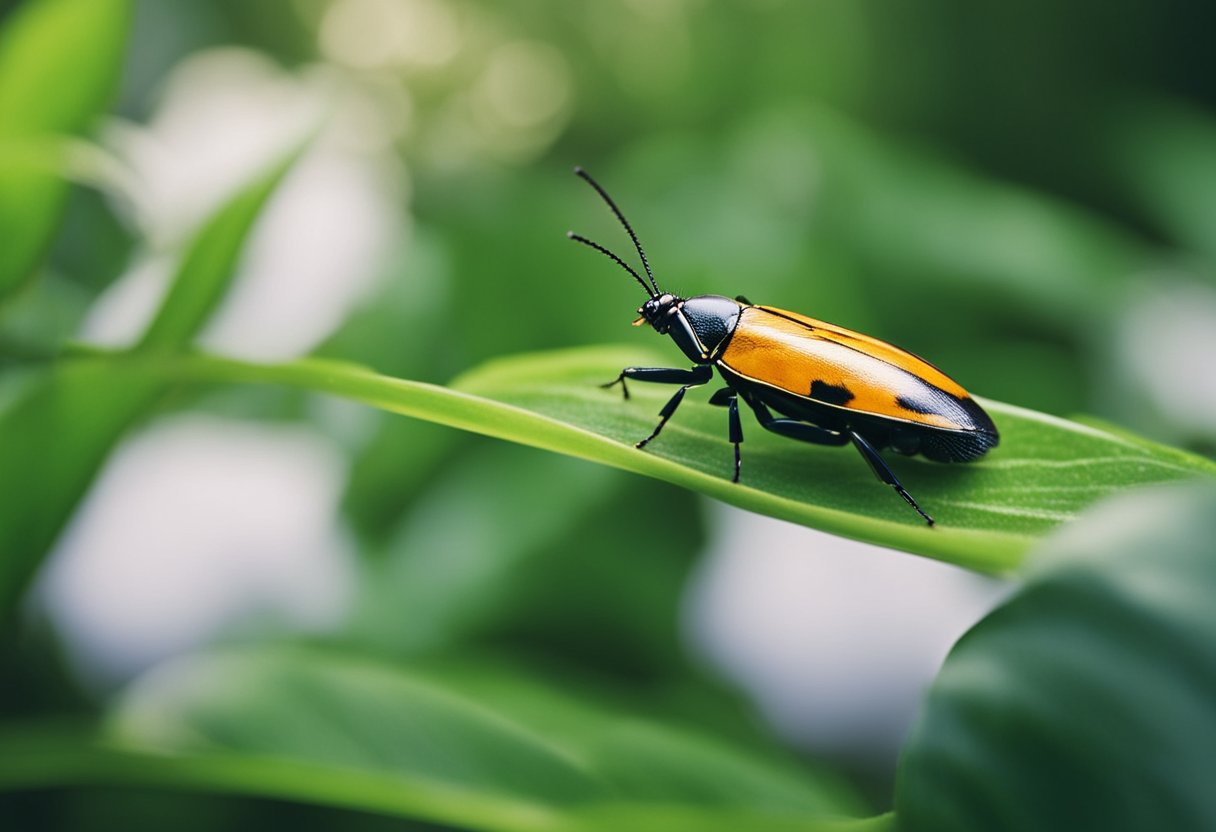
Bugs play a crucial role in maintaining the delicate balance of Singapore’s ecosystem. While some bugs are harmless, others can have a significant impact on the environment. Here are some ways in which bugs can affect the environment:
Impact on Plants
Many bugs feed on plants, and some of them can cause significant damage to crops and gardens. For example, aphids can suck the sap from plants, causing them to wilt and die. Similarly, caterpillars can eat the leaves of plants, which can stunt their growth and reduce their yield.
However, bugs can also be beneficial to plants. For example, bees and butterflies are essential pollinators that help plants reproduce. Without them, many plants would not be able to produce fruit or seeds.
Impact on Other Organisms
Bugs are part of a complex food web, and their presence or absence can have a ripple effect on other organisms. For example, if a particular bug species disappears, the animals that feed on it may also suffer. This can lead to a decline in the population of other organisms, which can have a significant impact on the ecosystem.
Impact on Fungi
Some bugs, such as termites, feed on wood and other organic matter. This can lead to the decomposition of dead plant material and the release of nutrients into the soil. However, if the population of bugs that feed on dead plant material is too high, it can lead to the depletion of nutrients in the soil.
Impact on Butterflies
Butterflies are one of the most beautiful and delicate creatures in Singapore’s ecosystem. However, they are also vulnerable to pollution and habitat destruction. Air pollution can expose butterflies to harmful substances, which can harm their health and reproduction. Without butterflies, many plants would not be able to reproduce, which could have a significant impact on the ecosystem.
In conclusion, bugs play a vital role in Singapore’s ecosystem. While some bugs can be harmful, others are essential to the environment. It is crucial to strike a balance between controlling harmful bugs and preserving the delicate balance of the ecosystem.
Maintaining Hygiene to Prevent Bugs
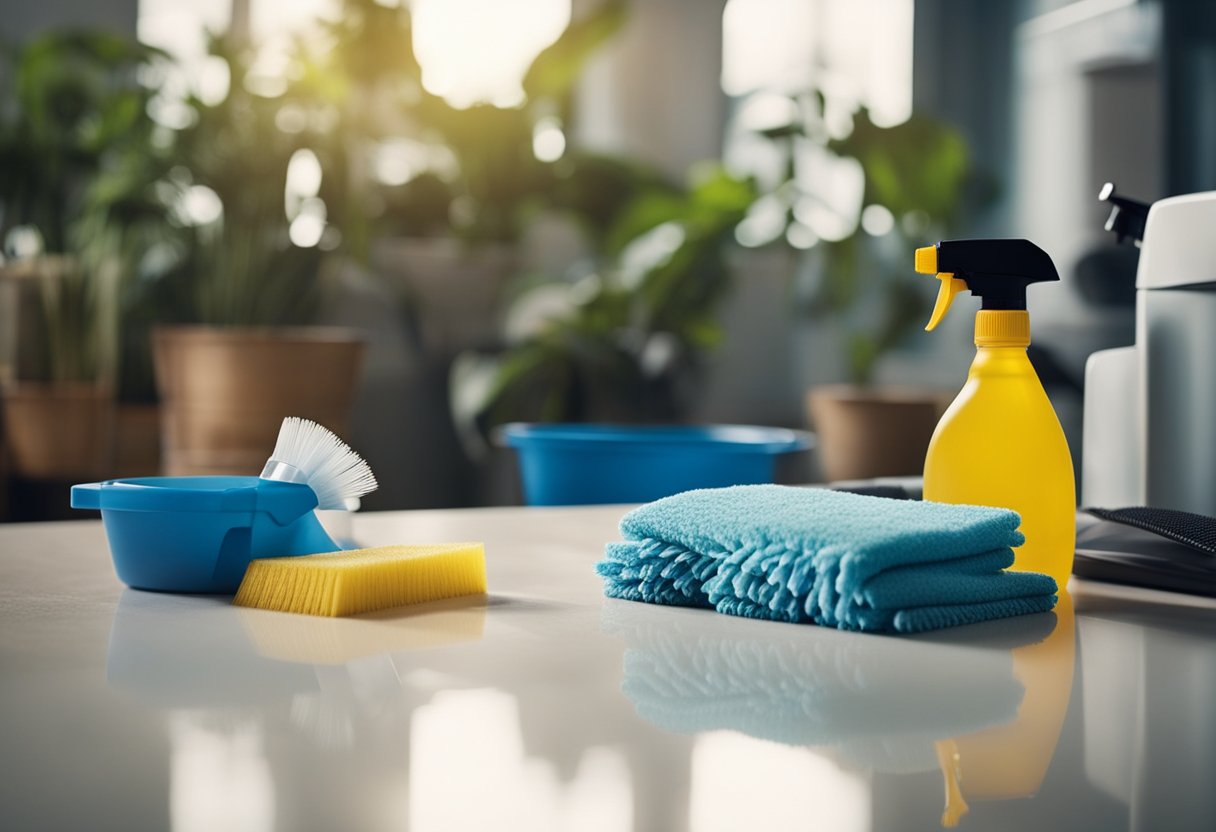
Maintaining good hygiene is one of the most effective ways to prevent bugs from infesting your home. Bugs are attracted to unclean and unsanitary environments, so keeping your surroundings clean and tidy is crucial. Here are a few tips to help you maintain good hygiene and prevent bugs from infesting your home:
-
Keep your home clean and tidy: Regularly clean your home, including floors, carpets, and furniture. Vacuuming and sweeping can help remove crumbs and other food debris that may attract bugs.
-
Store food properly: Keep your food in airtight containers to prevent bugs from getting in. Make sure to store food in a cool, dry place, away from direct sunlight.
-
Dispose of garbage properly: Bugs are attracted to garbage, so make sure to dispose of it properly. Use a trash can with a lid and empty it regularly.
-
Maintain your water sources: Bugs need water to survive, so make sure to fix any leaks and keep your home dry. Clean and dry sinks and bathtubs regularly to prevent bugs from breeding.
By following these simple tips, you can maintain good hygiene and prevent bugs from infesting your home. Remember, prevention is always better than cure, so make sure to take proactive measures to keep your home bug-free.
Bugs in Singapore’s Public Spaces
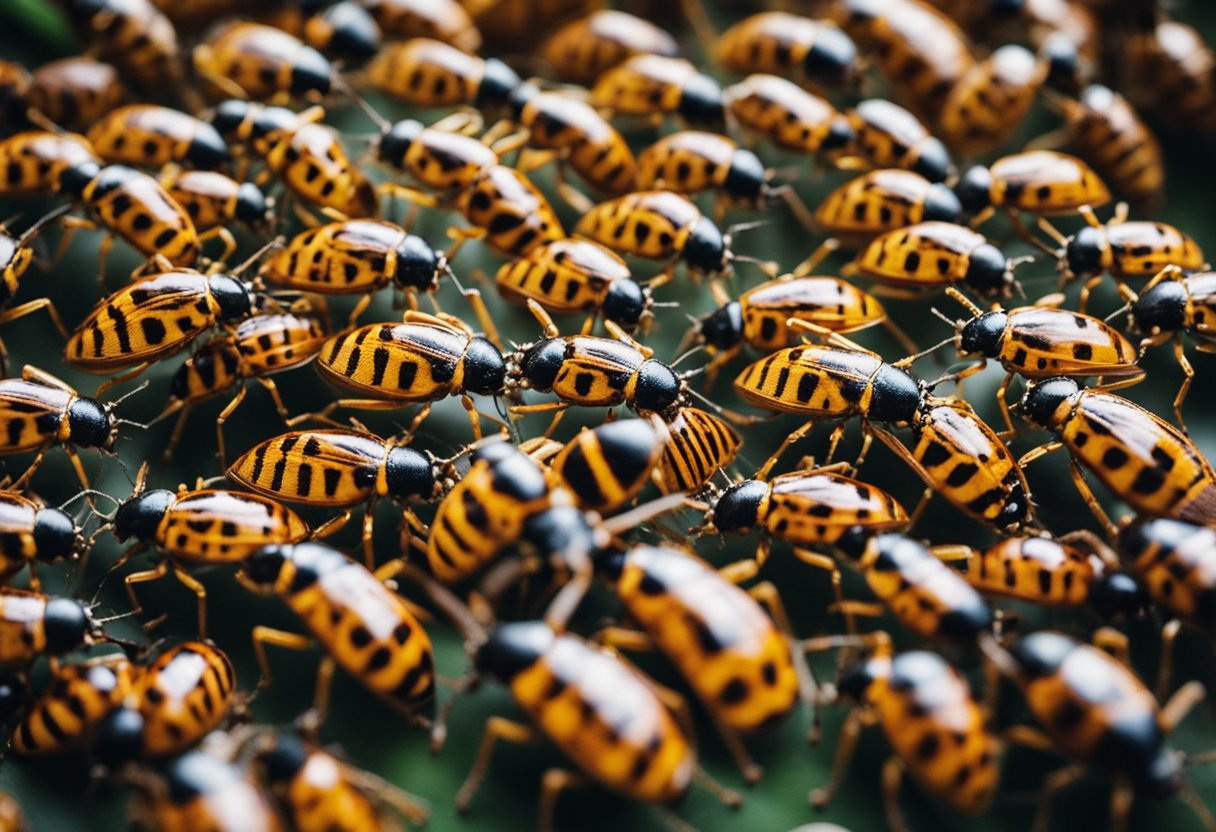
If you’re spending time in Singapore’s public spaces, you may encounter a variety of bugs. Some common ones include mosquitoes, ants, and cockroaches. These bugs can be a nuisance, but they’re generally harmless.
One place where you might encounter bugs is the Lee Kong Chian Natural History Museum. This museum is home to a variety of insects, including butterflies, beetles, and moths. While these bugs are safely contained within the museum, it’s still a good idea to take precautions to avoid bringing any unwanted guests home with you.
Another area where bugs can be a problem is Bukit Batok. In recent years, residents in this area have reported swarms of small, rice grain-sized insects. While the exact species of these bugs is unknown, they are generally considered harmless.
The weather in Singapore can also contribute to bug infestations. Hot and humid conditions can create the perfect environment for bugs to thrive. To avoid attracting bugs, it’s important to keep your surroundings clean and free of food debris.
If you do encounter bugs in public spaces, it’s important to remain calm and avoid swatting at them. Swatting can actually make the problem worse by releasing pheromones that attract more bugs. Instead, try to slowly move away from the area and seek assistance from a pest control professional if necessary.
Frequently Asked Questions

How can I effectively get rid of bed bugs in my home in Singapore?
Bed bugs are a common problem in Singapore homes. To effectively get rid of them, you can try vacuuming your home thoroughly, washing all bedding and clothing in hot water, and using insecticides specifically designed for bed bugs. It is recommended to hire a professional pest control service to ensure complete eradication.
What are some common types of bugs that are found in Singapore homes?
Some common types of bugs found in Singapore homes include ants, bed bugs, cockroaches, rodents, termites, and beetles. These pests can cause structural damage and pose health risks, so it is important to take preventative measures and seek professional pest control services if needed.
What are some preventative measures I can take to avoid a bug infestation in my home in Singapore?
To avoid a bug infestation, make sure to keep your home clean and free of clutter, seal any cracks or crevices where bugs can enter, store food in airtight containers, and dispose of garbage regularly. You can also use natural remedies such as essential oils or vinegar to repel bugs.
How do I identify and treat a beetle infestation in my home in Singapore?
To identify a beetle infestation, look for signs of damage to wooden furniture or structures, holes in fabric or clothing, and small black or brown beetles. To treat an infestation, you can use insecticides specifically designed for beetles, vacuum your home thoroughly, and remove any infested items.
What are some natural remedies for getting rid of bugs in my home in Singapore?
Some natural remedies for getting rid of bugs include using essential oils such as peppermint or lavender, using diatomaceous earth to repel insects, and using vinegar or citrus peels to repel ants. However, it is important to note that natural remedies may not be as effective as professional pest control services.
What are some common causes of bug infestations in homes in Singapore?
Common causes of bug infestations in homes include poor sanitation, clutter, cracks or crevices in the home, and exposure to other infested areas. It is important to take preventative measures such as regular cleaning and sealing entry points to avoid infestations.